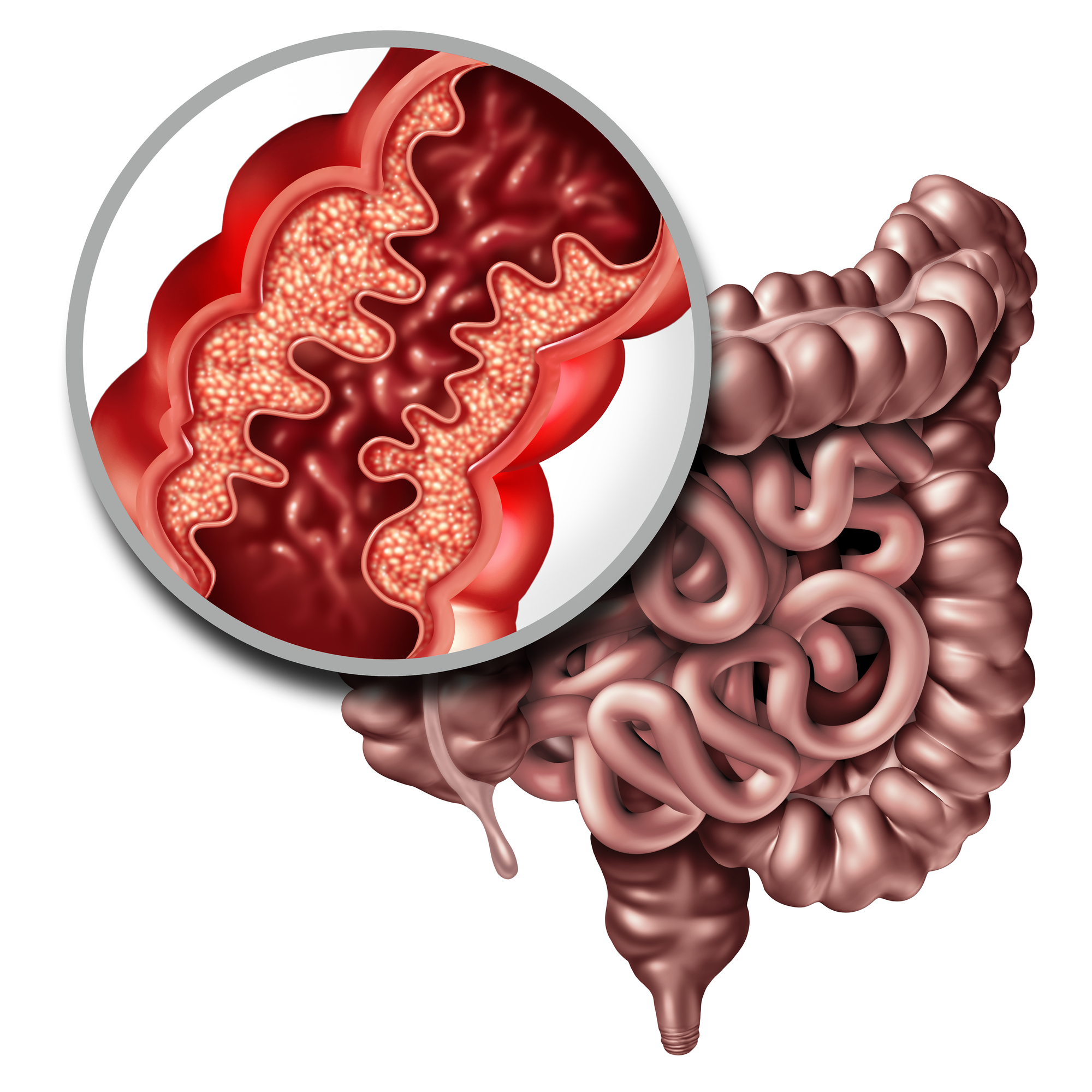Sometimes referred to as Ileitis, Crohn’s disease is a chronic condition known to cause inflammation and scarring in the intestinal tract. While the intensity of the symptoms may vary, most people with Crohn’s disease experience uncomfortable abominable pain and cramping along with diarrhea, fatigue, a reduction in appetite, sores in the mouth, and anemia. The condition is often marked by periods of severity or flare-ups, followed by remissions.
Estimates from the Crohn’s & Colitis foundation suggest that upwards of 800,000 Americans suffer from Crohn’s disease, which is sometimes misdiagnosed as ulcerative colitis.
While anyone can get Crohn’s disease, it tends to run in families, and to be more common among teenagers and young adults from ages 15 to 35 years. Additionally, females are slightly more likely than males to experience the condition. It is also slightly more common in the Caucasian population, and among those identifying as Ashkenazi Jews. Additionally, people who smoke are more likely to get it than nonsmokers. Smoking also can also hinder treatment outcomes and make the symptoms more frequent and severe.
If you or someone you love is suffering from symptoms that may be related to Crohn’s disease, it is important to seek out qualified medical attention from a gastroenterologist like the physicians at Gastroenterology Health Partners. Diagnosing the condition generally involves a variety of tests that may include blood tests, fecal tests, imaging tests including CT or MRI, colonoscopy procedure, endoscopy, and more.
At present, there is not a cure for Crohn’s disease, but there are a variety of treatment approaches that depend in part on a person’s specific symptoms and the severity of the condition. Sometimes certain medications including anti-inflammatory drugs, antibiotics and corticosteroids may provide relief.
Limiting Crohn’s Disease Flare Ups with a Dietary Approach
People with Crohn’s disease are encouraged to follow specific dietary recommendations to reduce the chance for disease flare ups. This tends to include the following:
- Avoid beverages with a lot of carbonation including soft drinks and carbonated waters.
- Limit certain high-fiber foods including the skins of vegetables, popcorn and nuts.
- Increase fluid intake, especially water.
- Drink beverages more slowly and without a straw, in order to avoid ingesting air, which can cause gas.
- Focus on eating foods made with basic techniques including boiling, poaching, or steaming.
- Avoid artificial sugars like sorbitol and mannitol, often used in sugar free candy and chewing gum.
- Limit lactose in milk, soft cheeses, cream cheese, and other dairy products.
- Limit foods that have a lot of fat including butter, coconut, cream, fried foods, greasy foods, etc.
- Limit beverages that contain caffeine and/or alcohol.
- Limit high spice foods, especially hot foods.
- Eat more fruits that are lower in fiber like melons (cantaloupe and honeydew) and bananas.
- Eat four to six frequent smaller meals a day rather than two or three larger ones.
Since each person’s experience with foods that trigger the condition may be unique, it is also advisable that people with Crohn’s keep some type of food journal to better identify patterns including which foods and beverages cause the most discomfort.
Surgery is also not uncommon for people with Crohn’s disease. In fact, estimates suggest that upwards of three out of four people with Crohn’s require surgery at some time. Though surgery does not provide a cure, it can help to preserve a person’s GI tract enough to provide some essential relief. Surgery is typically a consideration only after a person is no longer able to manage symptoms with dietary practices and medications. It may also be required if a person develops some type of intestinal obstruction, fissure, or fistula.
For additional information about Crohn’s disease, or to schedule an appointment with an experienced gastroenterologist, contact Gastroenterology Health Partners today by reaching out to a practice location near you.
If you are suffering from symptoms of a GI condition, the experienced team of medical professionals at Gastroenterology Health Partners is here for you using the most advanced treatment options available. We strive to provide the highest quality, most cost-effective GI care in the region. For more information or to schedule an appointment, contact Gastroenterology Health Partners today at a location near you.



